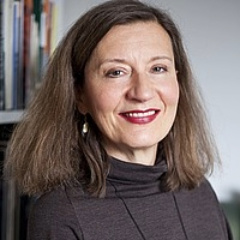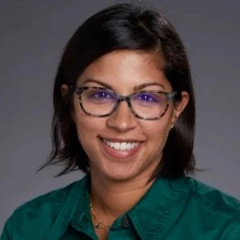Browse all past issues of VPAL's Into Practice Blog
Search All Issues
Topics
- active learning (18)
- research assignments (6)
- libraries (1)
- literature-based learning (2)
- multimedia (5)
- museums (6)
- object learning (7)
- online learning (5)
- peer instruction (10)
- storytelling (2)
- learning management system (2)
- syllabus design (3)
- teaching empathy (3)
- teaching fellows (1)
- lecture (3)
- learning goals (8)
- assessment (6)
- data (3)
- backward design (3)
- blended approaches (12)
- case-based learning (8)
- classroom contracts (7)
- classrooms and space (3)
- collaborative learning (27)
- community events (1)
- course transformation (7)
- devices (3)
- learning by making (5)
- discussion (24)
- engaged scholarship (4)
- experiential learning (16)
- feedback (18)
- group work (8)
- guest speakers (7)
- interdisciplinary (6)
- leadership (3)
Subscribe
Copyright © 2024 The President and Fellows of Harvard College | Privacy | Accessibility | Digital Accessibility | Report Copyright Infringement

 Sheila Heen, Thaddeus R. Beal Professor of Practice and a Deputy Director of the Harvard Negotiation Project at Harvard Law School (HLS), specializes in navigating challenging negotiations where emotions, relationships, and legal components are on the line. Heen is responsible for and team-teaches in Harvard Law School’s three Negotiation Workshop courses, with enrollment of over 400 law students and cross-registrants annually. The workshops are a primary way that students meet the new HLS graduation requirement to take a course that teaches negotiation, relationship management, and leadership skills. Over the last 40 years, the Negotiation Workshop has developed a self-reflective and experiential pedagogy that challenges faculty to walk their own talk as they both teach and learn alongside students. In the classroom, Heen and her faculty colleagues encourage students to reflect on their learning experiences, understand their decision-making processes, and apply theoretical knowledge in practical contexts to enhance their negotiation skills.
Sheila Heen, Thaddeus R. Beal Professor of Practice and a Deputy Director of the Harvard Negotiation Project at Harvard Law School (HLS), specializes in navigating challenging negotiations where emotions, relationships, and legal components are on the line. Heen is responsible for and team-teaches in Harvard Law School’s three Negotiation Workshop courses, with enrollment of over 400 law students and cross-registrants annually. The workshops are a primary way that students meet the new HLS graduation requirement to take a course that teaches negotiation, relationship management, and leadership skills. Over the last 40 years, the Negotiation Workshop has developed a self-reflective and experiential pedagogy that challenges faculty to walk their own talk as they both teach and learn alongside students. In the classroom, Heen and her faculty colleagues encourage students to reflect on their learning experiences, understand their decision-making processes, and apply theoretical knowledge in practical contexts to enhance their negotiation skills.  Dr. Sang E. Park, Associate Professor of Restorative Dentistry and Biomaterials Sciences and Associate Dean for Dental Education, is committed to ensuring that dental education at Harvard School of Dental Medicine (HSDM) prepares students for careers as dental practitioners while meeting the needs of its patients. Dr. Park has been instrumental in several curriculum redesigns, including the introduction of the Case Completion clinical curriculum in 2009. The most recent efforts of the Curriculum Redesign Task Force for the class for 2027 included a restructuring of the preclinical and biomedical curriculum, a strengthening of research components, and engagement of the
Dr. Sang E. Park, Associate Professor of Restorative Dentistry and Biomaterials Sciences and Associate Dean for Dental Education, is committed to ensuring that dental education at Harvard School of Dental Medicine (HSDM) prepares students for careers as dental practitioners while meeting the needs of its patients. Dr. Park has been instrumental in several curriculum redesigns, including the introduction of the Case Completion clinical curriculum in 2009. The most recent efforts of the Curriculum Redesign Task Force for the class for 2027 included a restructuring of the preclinical and biomedical curriculum, a strengthening of research components, and engagement of the  Ewa Lajer-Burcharth, William Dorr Boardman Professor of Fine Arts, is an art historian who focuses on 18th- and 19th-century European and contemporary post-1970s art. Lajer-Burcharth uses physical objects – such as paintings, sculptures, and textile arts – to enable more immersive forms of learning that enable students to experience objects of study in a hands-on way that is not possible with text-heavy teaching methods. These objects serve as a primary teaching tool for encouraging new perspectives and interrogating original sources. Students examine various objects from museum and library collections under the expert guidance of curators, and eventually assist in the curation of an exhibit. This allows students to have hands-on experience in both understanding and creating, rather than be solely trapped by reading and speaking. While her courses use physical objects as a point of reference, similar opportunities exist in other classroom contexts where students can contextualize the motivations of authors, musicians, and inventors, for example.
Ewa Lajer-Burcharth, William Dorr Boardman Professor of Fine Arts, is an art historian who focuses on 18th- and 19th-century European and contemporary post-1970s art. Lajer-Burcharth uses physical objects – such as paintings, sculptures, and textile arts – to enable more immersive forms of learning that enable students to experience objects of study in a hands-on way that is not possible with text-heavy teaching methods. These objects serve as a primary teaching tool for encouraging new perspectives and interrogating original sources. Students examine various objects from museum and library collections under the expert guidance of curators, and eventually assist in the curation of an exhibit. This allows students to have hands-on experience in both understanding and creating, rather than be solely trapped by reading and speaking. While her courses use physical objects as a point of reference, similar opportunities exist in other classroom contexts where students can contextualize the motivations of authors, musicians, and inventors, for example. Shoba Ramanadhan, Associate Professor of Social and Behavioral Sciences (HSPH), creates curricular experiences that highlight community partnerships and incorporates diverse student experiences for shared knowledge building in the classroom and within the community. To do this, Ramanadhan integrates principles of
Shoba Ramanadhan, Associate Professor of Social and Behavioral Sciences (HSPH), creates curricular experiences that highlight community partnerships and incorporates diverse student experiences for shared knowledge building in the classroom and within the community. To do this, Ramanadhan integrates principles of